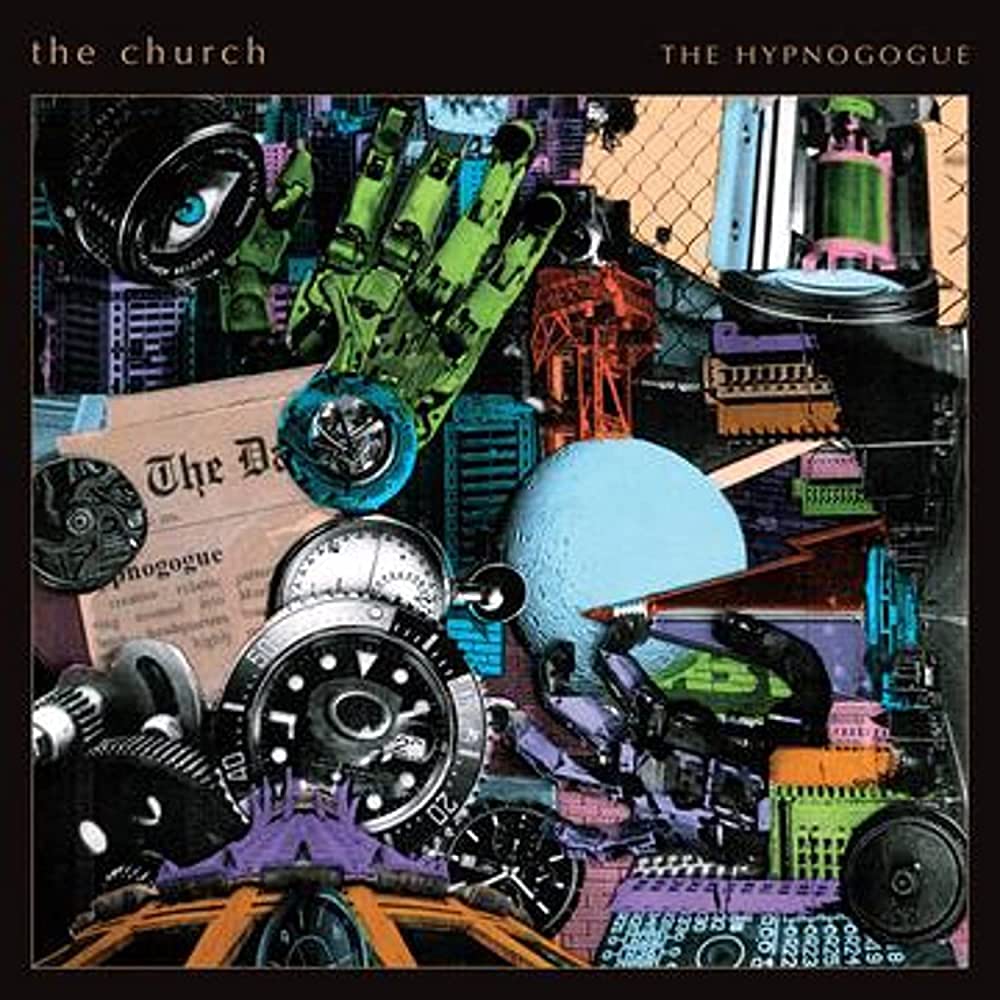With hits like “Under The Milky Way”, “The Unguarded Moment”, and “Reptile”, The Church burst out of Australia in the 80s and onto alternative radio. The band has been going strong ever since. Frontman Steve Kilbey recently took some time to talk about their ambitious new record The Hypnogogue and their upcoming US tour.
Please press the PLAY icon below for the MisplacedStraws Conversation with Steve Kilbey –
On the current lineup of the band – It’s me, it’s Timothy Powles (drums), and it’s Ian Haug (guitar), and it’s Jeffrey Cain (guitar), and it’s Ashley Naylor (guitar). :49
On changing both original guitar players – I’m gambling that we can incorporate what the core of The Church was and also move ahead, that would be the ideal situation. To try and keep that idea that the thing that the two guitars did together, that’s still part of the mission statement, always will be and always was. So, people stop. People quit, and then I just have a choice, “Do I have to quit because this guy quit?” and my answer just always is, “No”. I’m just gonna keep going. I’m not stopping because other people stop, I’m keeping going right to the end. It’s my band, it always was. They were all valuable and amazing players, everybody who played in the band, they all brought something to the band and in their spirit, and we move on, incorporating all the good things that they did and moving on with new players who wanna pick up the mantle and go into the fray. 1:40

On the story of The Hypnogogue – There is no story other than what I’m going to say. In the future, there’s a guy called Eros Zeta and he has a band called the Perfume Guitars, he lives in Antarctica. He’s sort of run out of songwriting steam, and one day hears that a woman across the other side of the world and Korea has invented this machine called The Hypnogoge and he travels there and uses it. It has disastrous consequences for everybody. That’s really it. That is the story right there. It’s a very loose story, it’s a very open story, the songs. Sometimes the songs are, for example, one song is he’s in a cab between his hotel and the Hypnogogue and the song comes on the radio, well, we play that, The Church play that song that comes on the radio. It’s sort of like minutiae, like tiny little snapshots of the overall story, little moments in time that occur in this arc of the story. There are little musical snapshots, and that’s what The Church sort of have done. You don’t have to have the story. You don’t have to be interested in the story. The songs stand up anyway. 3:24
On why do a concept record now – As I was making the album, I began to realize it could be a concept album. It had a feeling of like there’s something flowing through. But I didn’t have to look very hard. I don’t know where ideas come from. This name just came to me that the female protagonist should be called Sun Kim Jong, and she should be Korean, and she should be a scientist, and she’s invented this thing called the Hypnogogue. Now that I sort of feel like I’m in a universe where this has happened, I need a protagonist, and then this guy appeals to me, Eros Zets. This kind of wasted Percy Shelley, self-ironic, David Bowie, Ziggy Stardust pop star who lives 30 years in the future. He goes and uses this machine, doesn’t think it through. It is a machine, and it is a process, but it’s also part occult, and it’s part magic, and its part drug, and it’s part some sort of tantric stuff. It’s all kinds of things at once, this thing to get this music out of you. It’s quite a thing. So as we’re working on the record and writing the songs, the more the songs came, the more the story came to me how it could all be, and I just enjoyed it. Now, looking at it, there is a kind of a moral to the story, that If you do unusual or artificial, if you try and do things within yourself artificially without official…(loss of video for 6 seconds). 5:24
On expanding his writing from short, mini-stories to a longer piece – First of all, I’m very happy and I loved what you just said about each song seemed like a story before anyway, and now it’s like a much longer story. When all the songs were finished, I kind of made it work. You might have a song and I could decide a little context for that song to fit into the story, even though maybe it hadn’t been written to fit into the story or we weren’t sure where it was going to go. It’s a very loose and intuitive and a thing where if somebody said, “I have put a lot of thought into this shuffle and I’m listening to The Hypnogogue in another order and it’s making sense to me. This is how I see things”. I would go, “Yeah. Okay”. So it’s an interactive experience. It’s sort of like, in the end, it’s just some fun as some fun, imagine this fucking silly, silly bastard, he’s a pop star, he goes and submits himself to this crazy. The future is a ramshackle, broken down bits and pieces future. It’s not a high-tech, glossy, shiny one where they’ve got all the bits. It’s a kind of thing where, especially in Korea, this lady’s cobbled this thing together. It’s not a Kosher sort of thing at all, anyway, he has a go and it blows his mind and the songs that he writes blow people’s minds, and the whole thing is like just too far out for everybody. He ends up sitting on the side of a road with nothing going well. What just happened? It’s just purely for fun and the songs, just to give them an extra, a little bit of context if you want it. There’s some sort of clues on the album cover, there are some very, very slight clues about where you are at in the story. 8:49
On working with Waddy Wachtel for Starfish and Gold Afternoon Fix – I think he did a lot of good things. I completely put myself in his hands as an experiment and also because I was lazy and I was just like, “Alright, I’ll let this guy just tell me exactly how it should be”. There are certain assumptions, now, I wish I had questioned more. But I think he did a pretty good job. We met John Paul Jones and had a really good time with him, and we had a manager who really seemed to resent the fact that when we had dinner with John Paul Jones, we were, as you can imagine, all over it, like a rash. The manager kinda resented that and then sort of fixed it so it was sabotaged that we never really got a shot at doing it with him. Years later I met John Paul Jones in an airport, he said, “I really wanted to do that”. I said, “We really wanted you too”. He was saying, “Well, that isn’t what the information I got”, so it was sort of like rigged. Anyway, we went back with Waddy, it was not so successful the second time. Eventually, at the album after that, we worked with a great producer, Gavin MacKillop, and we were made. But it was too late by then. You don’t get that many chances. But we made this album called Priest=Aura and that was a really, really good album with really great production and sounds and attitude. 11:58
On having an audience willing to take a journey beyond just the hits – I’m banking everything on the fact that they are gonna follow me with this because to me, this one’s really important, I really think we’ve got something here. We’ve done a few shows, we’re doing a few tracks of this record, I now think we’re on to something. We’re gonna play the hits and we’re gonna play your favorites, and we’re gonna play some new songs. Every time I hope it all works. There’s no guarantees, there are no guarantees, not for The Church. I feel like every show we play, my life’s on the line. I don’t still walk on there like, “Yeah!”, I still walk on there like, “Oh boy, I hope they’re going to like me”, I do. Wherever it is, no matter what the situation, I don’t take it for granted. I’m just gonna say all the usual things somebody in my position is gonna say, and because of that, it’s almost meaningless. But yet, I have to say them, the band I have now are really an incredible bunch of players, 3 guitarists who are really absolutely top-notch guitarists who know how to play the guitar. We have some really interesting new songs, we were doing great versions of the old songs, and everybody really wants to be doing this. That’s the important thing, is the willingness. So I just hope people can enjoy it, and then that’s the reason for it all in the end. 14:54
On being able to regularly tour the US when a lot of other foreign bands can’t – Do you know what, it’s just not my field of expertise. I’m sorry, I don’t know how it works. I just know, I make a record and then I say, “Gee, I hope we tour America”, and somebody says, “Okay, work permits are approved. Be here on this day”, and you go, “Okay”. And then I turn up and in the end, sometimes I get paid some at the end sometimes is not very much at all. Every now and then, it’s really good. I don’t fucking really know how it all works 17:32
On the upcoming US tour and if they would play The Hypnogogue in full – If there was a demand, if there was a demand to play The Hypnogogue in its entirety, I’m there. Until that demand exists, we’re playing six songs off Hypnogogue and then a really solid cross-section of deep cuts and hits. Trying to be as inclusive as we possibly can, so that not one person can walk out and complain. We have tried to put together two and a half hours of music, so we hope we can give everybody a bit of what they want. 18:27
